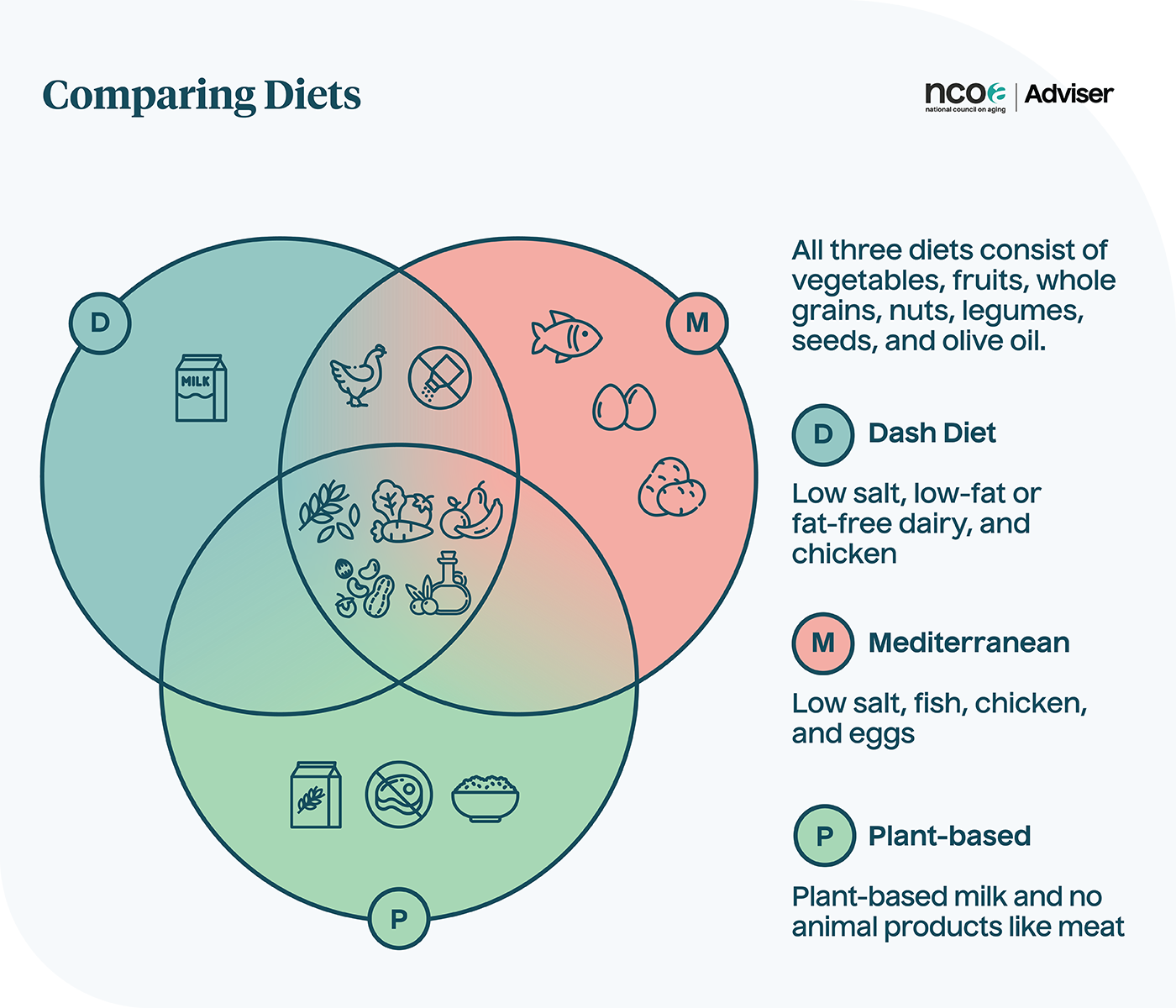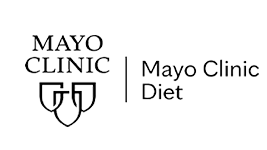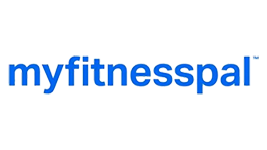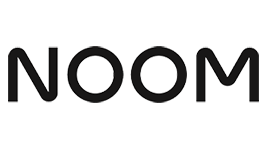- Based on the diet of people living near the Mediterranean Sea
- Focuses on plant-based foods, fish, and heart-healthy fats
Best Diets for Heart Health Reviewed by a Dietitian
If you have heart disease or want to improve your heart health, a healthy diet and lifestyle are often key. But it’s unrealistic to change your entire diet overnight. We recommend starting with small goals and working toward bigger ones.
We completed in-depth research and consulted with cardiologists, dietitians, and nutritionists to find out which diets are best for heart health. We’ve included tips on how to start small, what goals you can work toward, and any obstacles you may encounter along the way. We want to help make the transition to a healthy lifestyle a little easier by sharing what we’ve discovered.
Best heart-healthy diets of 2025
- Mediterranean diet
- Plant-based diet
- DASH diet
Eating healthy with heart disease
“There is no one tried-and-true diet for heart health or managing heart disease. However, I will say that all cardioprotective diets share many of the same principles,” said Kiran Campbell, a registered dietitian at Covenant HealthCare in Saginaw, Michigan. These include: focusing on plant-based foods; eating fruits, vegetables, and whole grains; and minimizing your intake of added sugars, red meat, and processed foods.
While that may sound like a lot of change, the key is to start small. Changing your entire diet can be overwhelming and unrealistic. Gradual diet changes allow your body time to adjust. “If high blood pressure is a major concern, start by reducing the sodium in your diet. Once you feel comfortable with regularly meeting your daily sodium requirement, then move on to another area—perhaps replacing unhealthy snack choices with healthier options. And so forth,” said Campbell.
Lifestyle changes for heart disease
Eating healthy is only one part of keeping your heart healthy. In addition to a nutritious diet, being physically active provides substantial health benefits, especially for your heart. The general guidance for most older adults is to aim for at least 150 minutes of moderate-intensity physical activity every week and moderate-intensity muscle-strengthening activity at least two days per week. There’s no specific recommended amount of time for muscle strengthening activities. You should complete these exercises to the point where it would be difficult to do another repetition. If you have a heart condition, it can affect your level of physical activity. Talk to your doctor about what physical activity is best for you.
You should also avoid smoking, vaping, or using any tobacco or nicotine products for your heart health. Limiting your exposure to secondhand smoke or vapor is important, as well. If you smoke or vape and are trying to quit, here are some resources that may help:
- Call (800-QUIT-NOW).
- Text QUITNOW to 333888.
- Download the quitSTART app for free on the App Store or Google Play.
Best diets for heart health, reviewed by experts
Mediterranean diet
How does the Mediterranean diet plan work?
The Mediterranean diet is based on the diet of people who live along the coast of the Mediterranean Sea. Although the diet has a few variations, it generally focuses on plant-based foods and healthy fats.
The Mediterranean diet consists of plant-based products with plenty of fish, vegetables, fruits, whole grains, nuts, seeds, and a small amount of meat and chicken. One of the goals of the Mediterranean diet is to focus on replacing unhealthy fats with healthy fats. “This means limiting the intake of full-fat dairy, butter, lard, commercially baked goods, and deep-fried foods and replacing them with olive oil, canola oil, avocados, nuts, seeds, or nut butter,” said Campbell.
Olive oil is the primary source of fat in the Mediterranean diet because it is a healthy fat with heart-protective benefits. Red wine, in moderation, is also a part of the diet.
| Food you can eat in the Mediterranean diet | Foods that you should limit in the Mediterranean diet |
|---|---|
| Fresh fruits and vegetables | Sweets |
| Nuts and legumes | Read meat |
| Whole grains | Fatty or processed meats |
| Fish (especially fatty fish) | Salt |
| Olive oil (and other non-tropical vegetable oils) | Processed foods |
| Poultry, eggs, and low-fat dairy | Saturated fats |
Our expert take on the Mediterranean diet
The Mediterranean diet may help prevent heart disease and stroke, and it may reduce risk factors for obesity, diabetes, high cholesterol, and high blood pressure.
Since the Mediterranean diet involves a lower consumption of red meat, there is a chance that you may develop low iron. If you consume a lot of red meat but want to transition to a Mediterranean diet, be sure to eat foods high in iron as a replacement. Here are some iron-rich foods that you can eat in the Mediterranean diet:
- Whole grain breakfast cereals that are fortified with 100% DV (daily value) for iron
- Oysters
- White beans
- Lentils
- Spinach
- Tofu
The diet also calls for a reduction in dairy, which might lead to low calcium levels. You can still eat dairy products with the Mediterranean diet, but you should stick to low-fat or fat-free products.
Why the Mediterranean diet plan works for heart health
The Mediterranean diet replaces “unhealthy” fats with “healthy” fats. Trans fat and saturated fat are considered “unhealthy” because they can increase your risk of heart disease. Monounsaturated fat and polyunsaturated fat are considered “healthy” because they can lower your LDL cholesterol and reduce your risk for heart disease.
Olive oil is a staple of the Mediterranean diet. In addition to being a healthy fat, it contains omega-3 fatty acids, which can reduce your risk of heart disease. Fish is another great source of omega-3 fatty acids and is one of the animal products encouraged in this diet.
Diet plans that include the Mediterranean diet
An online diet platform can provide additional guidance and support as you transition into a new diet. The Mayo Clinic Diet program includes a Mediterranean diet plan that can help you figure out the ins and outs of the diet. There’s also a gluten-free version for those with Celiac disease or gluten sensitivity. We tested the Mayo Clinic Diet for two weeks and found it a great program for beginners looking for a structured approach. Its sustainable approach, easy-to-follow recipes, and exercise guidance earned it our ranking of best weight-loss program for older adults.
Payment options
The Mayo Clinic Diet accepts credit card payments, including Visa, Mastercard, and American Express. It also takes PayPal and Apple Pay.
Plant-based diet
How do plant-based diets work?
A plant-based diet cuts out any meat products and includes a variety of vegetables, whole grains, nuts, and legumes. There are a few variations of plant-based diets, so you can choose which one is best for you:
- Vegetarian: This diet excludes meat and allows eggs and dairy.
- Vegan: This diet excludes meat, eggs, dairy, honey, and any other animal products. Many people follow a vegan diet to reduce their environmental impact or protest animal cruelty. It may also include other lifestyle changes, like using vegan cosmetics.
- Pescetarian: This diet excludes meat but includes seafood.
- Flexitarian: This is a flexible approach that is primarily plant-based but may occasionally include meat, dairy, and seafood.
Our expert take on Plant-based diet
There’s a lack of research-backed guidance on how much sugar or salt to include in a typical plant-based diet. For instance, some sweets may be considered vegan but don’t necessarily have nutritional value. If you have heart disease or other chronic health conditions, we recommend the Mediterranean or DASH diet over a plant-based diet since it is easier to find guidance on sugar and salt content, which can be more beneficial for your heart health. However, a plant-based diet can be an accessible place to start as you work toward the Mediterranean or DASH diet.
When switching from a meat-based to a plant-based diet, you want to ensure you’re still getting all the nutrients you need. Reducing meat and dairy products can reduce protein, vitamin B12, and calcium. If you decide to start a plant-based diet, tell your doctor so they can check your vitamin and mineral levels routinely.
If you currently eat meat and want to move toward a plant-based diet, here are some tips to help you get started:
- Start with one meatless meal per week. You don’t have to cut out meat entirely right away. An easy first step is to make one meatless meal during the week.
- Have plant-based foods and snacks on hand. When you grocery shop, buy plenty of beans, vegetables, legumes, nuts, seeds, and whole grains.
- Think of vegetables as the main course. When you plan a meal, focus on the vegetable as the main dish. Try to fill most of your plate with vegetables.
Why the plant-based diet plan works for heart health
Animal-based products like beef, pork, and full-fat dairy tend to have high amounts of saturated fat. Saturated fats are known to raise the LDL cholesterol level in the blood, which can increase your risk of heart disease and stroke. Cutting out meat and full-fat dairy can benefit your heart by reducing the saturated fat you consume and lowering your LDL cholesterol and your risk of heart disease.
Diet plans that offer a plant-based diet
MyFitnessPal offers an “Eat Green” plan that helps users learn how to make sustainable food choices that are beneficial for their health and the planet. You can discover new strategies for reducing your meat intake and picking low-carbon-impact foods. The “Eat Green” 14-day guide is great for beginners learning how to make more plant-based choices.
DASH diet
How does DASH diet plan work?
The DASH (Dietary Approaches to Stop Hypertension) diet is often recommended for people with high blood pressure, also called hypertension. The overall approach is to reduce salt intake and increase fruits, vegetables, whole grains, low-fat dairy, and lean protein.
| Food you can eat in the Mediterranean diet | Foods that you should limit in the Mediterranean diet |
|---|---|
| Vegetables and fruit | Foods with added salt |
| Whole grains | Sweets |
| Heart-healthy fats like olive and canola oil | Sugar-sweetened beverages |
| Protein such as lean meat, poultry, beans, soy foods, fish, legumes, and eggs | Full-fat dairy |
| Nuts and seeds | Alcohol |
The recommended daily salt, or sodium, intake for most adults is 2,300 milligrams. Planning meals for the DASH diet may require a little bit of time and effort as it can be difficult to know which foods are high in salt, especially when eating takeout. According to the Centers for Disease Control and Prevention, 40% of sodium consumed by Americans comes from:
- Deli meat
- Pizza
- Burritos and tacos
- Soups
- Savory snacks like chips, crackers, or popcorn
- Poultry
- Pasta mixed dishes
- Burgers
- Egg dishes and omelets
Our expert take on the DASH diet
The DASH diet is best for people seeking a more structured approach to dieting for heart health. It contains all the core components of a heart-healthy diet and can help with chronic conditions like hypertension and diabetes.
If you’re just starting with the DASH diet, here are some tips to help make the transition a little easier:
- Make small, gradual changes. For instance, add a serving of vegetables, fruits, milk, yogurt, and cheese to your meals or as a snack. Start with one group, and slowly add more.
- Vary the protein you eat. If you only eat one kind of protein, switch things up. Try to eat fish at least once or twice a week.
- Make substitutions to your current diet. You can swap out any grains you eat with whole grain instead, like swapping white bread with whole grain wheat bread.
- Have nutritious snacks on hand. Next time you shop for groceries, buy snacks like fresh fruit, rice cakes, nuts mixed with raisins, graham crackers, popcorn without salt or butter, and fat-free or low-fat yogurt.
Why the DASH diet plan works for heart health
Sodium plays a big role in balancing the fluids in your body. If you consume a lot of sodium, your body will retain more water so that the sodium concentration in your blood is maintained. When this happens, there’s more fluid in your bloodstream, which increases your blood pressure. That’s why the DASH diet focuses on reducing your salt intake. When you eat less salt, fluid retention decreases, which can lower your blood pressure.
Diet plans that offer the DASH diet
Noom is a weight loss platform that combines lessons with personal coaching so you have instruction and motivation to help you reach your goals. It doesn’t have a specific DASH diet plan, but the personalized coaches can make individual recommendations for your particular plan. If you are looking for guidance and support for the DASH diet, you can message your coach at any time, and they can help you make low-sodium food choices, plan a low-sodium meal, and find low-sodium food replacements. You can ask your coach questions like:
- What easy DASH diet recipes or meal ideas can I try this week?
- Can you help me create a personalized meal plan that is DASH diet-friendly?
- How can I manage cravings and stay on track?
- How can I make healthier choices that align with the DASH diet when dining out?
A recent study found that Noom is a suitable app for supporting people who follow the DASH diet because it: provides lessons and strategies well-suited to the DASH diet recommendations; tracks food, physical activity, and water intake; and allows you to track your blood pressure.
Payment options
Noom accepts PayPal and most major credit cards with the exception of American Express. It does not accept HSA or FSA cards.
Comparing diet plans

How we research and evaluate diet platforms
Based on our expert consultations, research, and testing, we determined the following factors to be essential for our readers when signing up for a diet platform:
- Education in nutrition and weight management
- Accountability through progress tracking
- Recommendations and tips for physical activity
- Access to clinical support
- Availability of mental health resources
- Ease of use of the app or website
We had all of our reviews medically reviewed by an expert in the field to ensure the information is appropriate for NCOA readers’ needs.
Special weight loss considerations for older adults
Before starting a weight loss program, you should always talk to your health care provider. Weight loss programs may not be the best option for everyone. While there are certainly benefits to weight loss, these programs also pose unique potential risks for older adults.
Older adults are more at risk for experiencing bone and muscle loss due to calorie restrictions. Losing muscle mass and strength can also lead to other adverse effects like reducing physical function and overall quality of life. Talking to your health care provider first is important; they can advise you on the best steps to reach your health goals.
Weight loss programs can still be beneficial for older adults. For example, one study found that older adults participating in a dietary and exercise program improved overall quality of life and physical performance. You can weigh the benefits and risks with your doctor or health care provider.
Bottom line
Adopting a heart-healthy diet like the Mediterranean, DASH, or plant-based diet will help you focus on incorporating vegetables, fruits, and whole grains and limiting saturated fat, sugar, and salt. These nutrient-rich diets offer numerous health benefits, including lowering your risk of heart disease and other health conditions.
As you change your diet, make sure you start slowly with small steps toward your goal. It may be challenging, but there are help and resources available. We recommend talking to your health care provider before starting a new diet. They can offer resources, tips, and a referral to a registered dietitian nutritionist (RDN). Take those small steps and be patient and kind to yourself—slow and steady progress is still progress.
Frequently asked questions
Mediterranean, DASH, and plant-based diets can all benefit the heart. Any diet that contains fruits, vegetables, whole grains, and healthy protein sources and limits added sugars, salt, alcohol, and processed foods is a great diet for your heart health.
Heart patients should avoid foods high in added sugar and salt and limit their intake of alcohol and processed foods.
Yes, you can eat eggs on a heart-healthy diet. They are a great protein and vitamin source, but they have some cholesterol, so you should limit your egg intake to one egg or two egg whites per day.
Sources
- Health.gov. Physical Activity Guidelines for Americans. 2nd Edition. Found on the internet at https://health.gov/sites/default/files/2019-09/Physical_Activity_Guidelines_2nd_edition.pdf
- American Heart Association. The American Heart Association Diet and Lifestyle Recommendations. Found on the internet at https://www.heart.org/en/healthy-living/healthy-eating/eat-smart/nutrition-basics/aha-diet-and-lifestyle-recommendations
- MedlinePlus. Mediterranean Diet. Found on the internet at https://medlineplus.gov/ency/patientinstructions/000110.htm
- American Heart Association. What is the Mediterranean Diet? Found on the internet at https://www.heart.org/en/healthy-living/healthy-eating/eat-smart/nutrition-basics/mediterranean-diet
- Rishor-Olney CR, Hinson MR. Mediterranean Diet. StatPearls [Internet]. StatPearls Publishing. 2023. Found on the internet at https://www.ncbi.nlm.nih.gov/books/NBK557733/
- National Institutes of Health Office of Dietary Supplements. Iron. Found on the internet at https://ods.od.nih.gov/factsheets/Iron-HealthProfessional/
- National Institutes of Health Office of Dietary Supplements. Calcium. Found on the internet at https://ods.od.nih.gov/factsheets/Calcium-HealthProfessional/
- American Heart Association. Saturated Fat. Found on the internet at https://www.heart.org/en/healthy-living/healthy-eating/eat-smart/fats/saturated-fats
- De Groeve B, et al. Ideological Resistance to Veg*n Advocacy: An Identity-Based Motivational Account. Frontiers in Psychology. 2022. Found on the internet at https://doi.org/10.3389/fpsyg.2022.996250
- Hever J, Cronise RJ. Plant-based Nutrition for Healthcare Professionals: Implementing Diet as a Primary Modality in the Prevention and Treatment of Chronic Disease. May 2017. Found on the internet at https://www.ncbi.nlm.nih.gov/pmc/articles/PMC5466942/
- Pribis P. Nutrient Intake and Status in Adults Consuming Plant-Based Diets Compared to Meat-Eaters: A Systematic Review. Nutrients. January 2022. Found on the internet at https://www.ncbi.nlm.nih.gov/pmc/articles/PMC8746448/
- MedlinePlus. Understanding the DASH Diet. Found on the internet at https://medlineplus.gov/ency/patientinstructions/000784.htm
- Centers for Disease Control and Prevention. Top Food Category Contributors to Sodium and Potassium Intake — United States, 2015–2016. Found on the internet at https://www.cdc.gov/mmwr/volumes/69/wr/mm6932a3.htm
- Campbell A. DASH Eating Plan: An Eating Pattern for Diabetes Management. May 2017. Found on the internet at https://www.ncbi.nlm.nih.gov/pmc/articles/PMC5439361/
- Belanger M, et al. Effects of the Dietary Approaches to Stop Hypertension Diet on Change in Cardiac Biomarkers Over Time: Results From the DASH-Sodium Trial. Journal of the American Heart Association. January 2023. Found on the internet at https://www.ahajournals.org/doi/10.1161/JAHA.122.026684
- National Heart, Lung, and Blood Institute. Making the Move to DASH. Found on the internet at https://www.nhlbi.nih.gov/resources/making-move-dash
- American Heart Association. Get the Scoop on Sodium and Salt. Found on the internet at https://www.heart.org/en/healthy-living/healthy-eating/eat-smart/sodium/sodium-and-salt
- Alnooh G, et al. Identification of the Most Suitable Mobile Apps to Support Dietary Approaches to Stop Hypertension (DASH) Diet Self-Management: Systematic Search of App Stores and Content Analysis. Nutrients. August 2023. Found on the internet at https://www.ncbi.nlm.nih.gov/pmc/articles/PMC10421018/
- American Heart Association. Are Eggs Good for You or Not? Found on the internet at https://www.heart.org/en/news/2018/08/15/are-eggs-good-for-you-or-not






